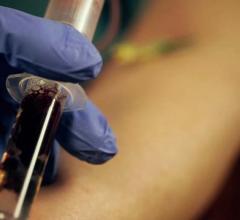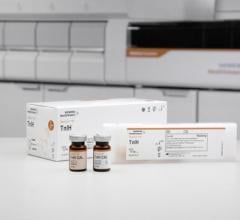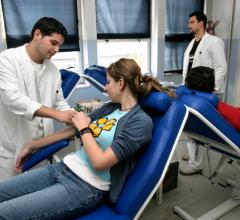July 16, 2012 — LipoScience Inc., an in vitro diagnostic company developing clinical diagnostic tests using nuclear magnetic resonance (NMR) technology, announced publication of the findings of a clinical study in the current issue of the Journal of the American College of Cardiology indicating that high density lipoprotein (HDL) particle number has a stronger, more independent association with coronary heart disease and carotid atherosclerosis than HDL cholesterol (HDL-C).
Clinicians have historically used levels of HDL cholesterol, referred to as “good cholesterol,” to help assess a patient’s risk for cardiovascular disease (CVD). However, recent studies have called into question the consistency of the relationship between HDL-C levels and CVD risk, and in particular whether high HDL-C is always protective. This new study suggests the problem may be that because HDL-C levels are linked to many other markers of CVD risk, it is difficult to determine the importance of HDL-C as an independent risk factor. An alternative biomarker of HDL-related risk is HDL particle number (HDL-P), which the study found to be more strongly associated and more independent of other risk markers with atherosclerosis and coronary heart disease (CHD) events.
Researchers analyzed blood samples obtained at study onset from 5,598 middle-aged men and women free of cardiovascular disease who participated in the Multi-Ethnic Study of Atherosclerosis (MESA), a prospective observational study initiated and overseen by the National Heart, Lung and Blood Institute. Participants were followed for a mean of six years for incident CHD events – including angina, heart attack and coronary heart disease death.
HDL particle levels were measured using LipoScience’s NMR LipoProfile test, which detects the concentration of low density and high density lipoprotein particles in a blood sample and provides physicians and their patients with actionable information to personalize management of risk for cardiovascular disease. To date, over 7 million NMR LipoProfile tests have been ordered to aid in the management of patients’ heart health.
For more information: www.liposcience.com


 October 09, 2019
October 09, 2019 









